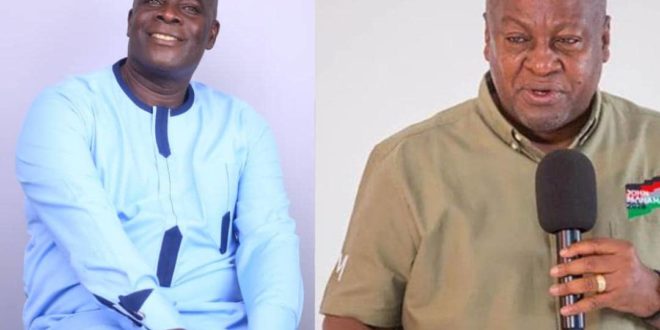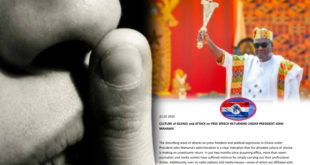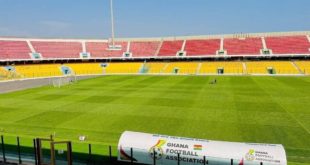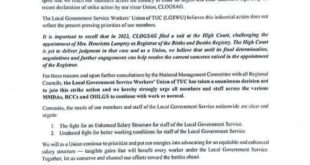For the 7th December, 2024, presidential elections in Ghana, NDC, and its presidential candidate are at the pinnacle of pylons advocating a new 24- hour work day policy. This is to replace the time- tested 8- hour work day policy of ILO, which Ghana and many countries have ratified.
This piece is to present microscopic understanding of the two work day Economic policies and offer indepth perspectives to help voters make sensible and critical choices in respect of these two hours of work in a new government of Ghana.
One may ask, how did the world and Ghana in particular adopt an eight (8)- hour work day policy for its workforce? Why are John Mahama and NDC seeking presidential authority to bring in a 24- hour work day to replace it?An 8- hour work day entails daylight work activities. This starts at 8 am to noon. Then noon to 1 pm is lunch break. Then work resumes 1pm to 5pm. This is a basic 8- hour work day policy for labour. Yet the 24- hour work day entails a policy where the work day continues from 8am to the next day, 8am, or throughout the 24- hour day.
How did we get the 8- hour work day policy? It is worth noting that the 8- hour work day policy didn’t come into existence via lottery but through a sustain pressure of organised labour globally. For instance, research has it that in 1594, Philip II of Spain established the 8- hour work day for construction workers in Spanish Colonies by a royal edict. An exception was applied to mine workers, whose work day was limited to 7 hours. Also, in 1835, the Philadephia carpenters led another strike movement to the acceptance of the 8- hour work day policy. It also failed. As fate would have it, in 1846, the Federation of Organised Trade and Labour Unions called for a national strike, demanding an eight hour work day. This also failed. Yet with the Great Depression’s severe unemployment situation in the US, the labour movement revived the 8- hour idea with more disruptive actions on the labour front. So, in 1869, President Ulysses S. Grant yielded to labour’s demand and passed the Fair Standards Act, establishing an Eight- hour work day or 40 hours a week policy in the US. This declared that an employer can not reduce wages as a result of the reduction of work day hours to eight per day.
Moreover, a strike for the 8- hour work day couldn’t be achieved in May 1919 in Peru, in 1915 in Uruguay, and in Chile in 1924.In today’s world, the UN agency of ILO, by 2016, got Ghana and other 160 other countries to ratify the 8- hour work day Convention of ILO.
Currently, ratifying member states undertook to apply the Convention in national laws and practices. Once ratified by a country, the Convention is binding upon the country, Ghana including. Ghana has been a member of ILO since 8th March, 1957, and ratified all 8 Fundamental Conventions of ILO. In view of the afore- mentioned insights to the existing 8- hour work day policy in our commitment to ILO, how are John Mahama and NDC going to implement a policy contrary to ILO’s ratified Conventions on 8 – hour work day policy? Currently, there is no country in the UN’s 193 members who are implementing and practising a 100% 24- hour work day policy. In the US, about 30%, the UK has 19%, Germany has 12%, and France has 7%, Ghana has 3% of its labour force workers in the hours from 5 pm to 8am.
A careful consideration of the 24- hour policy need to be implemented if Ghana has favorable factors like urbanisation, stable economic growth, technological advancement, changing consumer lifestyles, E- Commerce, online services, nightlife and entertainment, to mention but a few.
Sadly, NDC and John Mahama seem myopic in understanding Ghana’s economy. It is common knowledge that not all economic sectors in Ghana can run a 24- hour economy.
For example, you can not implement a 24-hour policy in rural areas where there are inadequate economic prospects, insufficient human resources, and financial and material resources to support economic growth and development. In addition, with post COVID-19 global economic slow down and shrinking of the economies of the development partners, Ghana doesn’t have sufficient economic foundation for the take- off of the mirage 24- hour economy.As a potential voter, NDC and John Mahama have not published the Cost- Benefit analysis Report of the 24- hour economy policy they are beguiling Ghanaian voters with. There is no published data on the Gantt chart of its implementation pathways.
The voter is yet to be informed by proponents of this blind ambition policy how the 24-hour economy policy can broaden economic activities in Ghana. We are yet to know how such a lame duck and thoughtless policy can help Ghanaians to have upward social mobility and get out of poverty. It is refreshing to state herewith that countries that practice 24- hour economy do it in major cities and economic hubs. This 24- hour economy policy is a round- the- clock economy work day activity.
Currently, the NPP government has employed almost all nurses and teachers that the John Mahama government left wallowing at home. This has shot government payroll from 600,000 to over a million. This is taking a greater percentage of government revenue for compensation and salaries, leaving a little drilling margin for infrastructure development and human ingenuity investments. One may ask, how many people would be added to the government payroll for the night shift workforce?From the foregoing, one can say that 24- hour economy policy is not an end in itself. It can not guarantee efficient and effective use of Ghana’s resources.
At this stage, what would be the Mirage policy’s implementation costs and management costs?At this juncture, this write-up is unearthing latent questions that John Mahama and NDC have shy away to addressing.
The orientation of people’s mindset in terms of change in work culture and non- traditional working hours comes to the fore.Currently, Ghana’s economy has shifted from a manufacturing- driven economy to a more service- oriented economy, so who will be patronising the services past midnight?
It could be noted that countries practising some degree of 24- hour economy like Dubai and Abu Dhabi have well established business hubs. These hubs facilitate global business operations and transactions across different time zones globally.
Also, such countries have free zones in areas that are conducive to business activities. Is Ghana’s retail and shopping ready for a 24- hour economy policy that is stillborn?Succinctly, a 24- hour economy results from a strategic combination of fruitful economic policies, tourism initiatives, technological advancement, business- friendly environment, public safety, and collaboration with stakeholders, to mention but a few.
It can be asked further if the 24- hour economy policy’s being advocated by John Mahama and NDC is feasible and practical? How much would the additional night- time workers’ economic output going to add to Ghana’s economy? What would the Gross Value Added to contribute by each sector of Ghana’s economy? In summary, one can see clearly that the 8- hour work day economy policy is entrenched, and to think of replacing it with a thoughtless 24- hour round, the clock policy is laborious and unrealistic. To replace the 8- hour work day policy, John Mahama and NDC need to get out of the ILO Convention that binds Ghana labour force to the benefits of having ratified it. How long will it take John Mahama to wean Ghana off the ILO commitment?
It is because of Ghana’s ratification of the Convention that is why Ghanaian workers enjoy May Day celebrations and Labour Unions.In conclusion, it can be stated that the 8- hour work day policy is easily practised 100% in Ghana and many ILO member states. But the 24-hour economy policy is practised in developed urban cities with higher security and infrastructural facilities available.
These lend to the fact that John Mahama and NDC 24-hour work day policy is a mirage and blind ambition policy. It is unrealistic and impracticable to implement in a peasant economy like Ghana, which has over 60% of the population engaging in agricultural activities.
By
Captain Eyi Acquah
Chief Operating Officer (COO) for FoB’08 Foundation
THANK YOU for constantly reading stories on MyGhanaMedia.com, a news publishing website from Ghana. Kindly like, follow, comment, and SHARE stories on all social media platforms for more entertaining updates!
Follow us on Twitter: https://twitter.com/
Source: MyGhanaMedia.com
There are four types of content published on MyGhanaMedia.com daily: curated content; syndicated content; user-generated content; and original content.
 MYGHANAMEDIA.COM Best Source Of Latest News
MYGHANAMEDIA.COM Best Source Of Latest News





